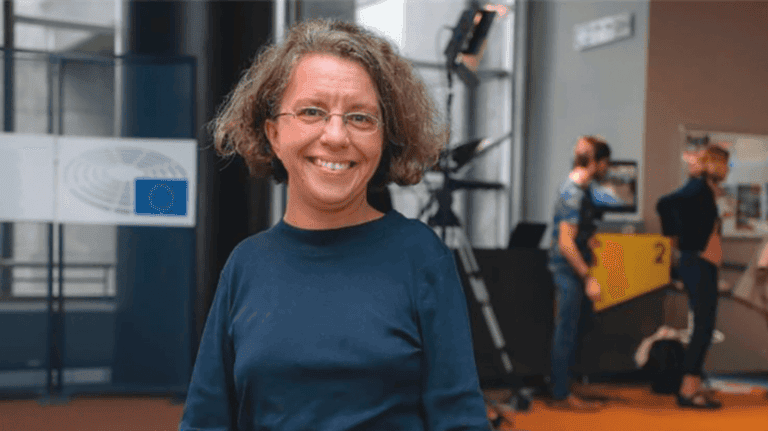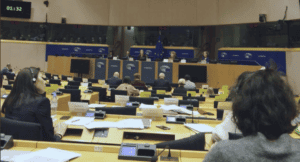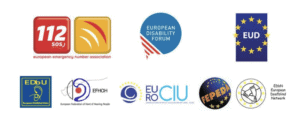In July 2022, Member of European Parliament (MEP), Katrin Langensiepen (Alliance 90/The Greens), led a report outlining the EU Parliament’s position concerning the AccessibleEU Centre (the Centre hereafter) which was voted on by the Internal Market and Consumer Protection Committee. The report was adopted by 43 MEPs in favour and 1 abstention. The Centre, a flagship initiative under the EU Disability Rights Strategy 2021-2030, will be developed in 2022 with the purpose of sharing good practices across sectors, inspiring policy development at national and EU level, as well as developing tools and standards aiming to facilitate implementation of EU law.
The report calls on both the EU Commission and Member States to actively engage in the area of accessibility at EU and national level. For instance, it outlines that Member States should “establish national accessibility hubs, which could comprise of contact points and mirror groups of experts to work hand in hand with the [AccessibleEU] centre on implementing, monitoring and enforcing accessibility legislation”. Additionally, the adopted text calls the EU Commission to ensure there is cooperation among public administrations, economic operators, accessibility professionals, and persons with disabilities and their representative organisations through the Centre.
Regarding the coordination of the Centre, it is proposed in the report to “establish a secretariat and a forum to steer and lead the work of the Centre”, as well as “specialised sub-groups of experts for certain areas” such as the built environment, public procurement, digital technologies, media and culture, transportation, emerging technologies, and assistive technologies, among others.
Importantly, it is requested in the report that, after five years, the Commission evaluates the effectiveness of the Centre, and “based on this assessment, the Commission should take appropriate steps to update and improve the Centre, including an evaluation of the possible establishment of an [EU regulatory] agency if the objectives listed in its mandate are not accomplished”. It is encouraging that the EU Parliament is calling for further action in this regard. It is this type of support for the disability community, including deaf persons, that is needed at the political level in order to protect and ensure the rights of persons with disabilities in Europe. The next step is for the report to be voted on in plenary after the summer period.
As the definition of accessibility and what it entails varies significantly depending on the disability group in question, it is particularly important, in order to account for deaf persons in the EU, that the Centre establishes a separate committee/section/sub-group/working group on accessibility in national sign languages of the EU (not only through sign language interpreting, but directly in national sign languages as well) in various domains in life. The experts of such subgroup could exchange information on how to ensure this accessibility as well as discuss the quantity and, very importantly, the quality of information and communication provided in national sign languages in various EU Member States.
Most importantly, such subgroup on accessibility in national sign languages should track and monitor national sign language recognition by the EU Member States and the EU itself. Additionally, the subgroup could ensure that accessibility of information and communication through national sign languages for deaf persons is guaranteed to the same extent as information and communication through spoken language is ensured for hearing persons. The subgroup on accessibility in national sign languages could identify and help to overcome gaps and inconsistencies in current legislation, providing policy recommendations for updating and developing laws that would ensure accessibility in national sign languages.
Moreover, the Centre could host working groups/focus groups on 112 accessibility for the deaf, which would allow the Member States to share with good practices implementing the EU obligations (steaming from the EAA and EECC) to make the 112 accessible for persons with disabilities.
To read the report, please visit this link: https://www.europarl.europa.eu/meetdocs/2014_2019/plmrep/COMMITTEES/IMCO/DV/2022/07-11/14-Final_CAs_AccessibleEUCentre_EN.pdf













